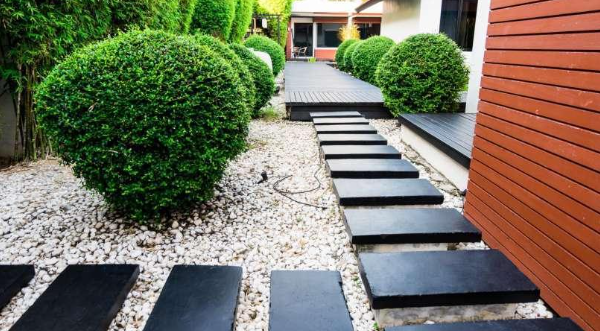The Essential Guide To Hiring A General Contractor: What Every Homeowner Should Know

Hiring a general contractor can be one of the most crucial decisions when undertaking a home renovation or construction project.
From handling permits to coordinating subcontractors, an excellent general contractor (GC) can ensure your project is completed smoothly, on time, and within budget.
However, finding the right contractor requires careful consideration and planning. This guide outlines the essential steps and insights every homeowner should know when hiring a general contractor.
1. Define Your Project Scope
Before reaching out to a contractor, outline your project’s scope. Define your goals, set your budget, and create a rough timeline.
For example, consider which elements (like cabinetry, appliances, or flooring) need updating if you’re planning a kitchen remodel.
The more detailed your project scope, the easier it will be for potential contractors to provide accurate estimates and timelines.
Having a clear vision allows you to communicate your needs better, reducing misunderstandings later.
2. Research And Gather Referrals
One of the most reliable ways to find a trustworthy contractor or Construction company is through personal referrals. Start by asking friends, family, or colleagues who have had similar work done.
If you see construction in your neighborhood, ask the homeowners about their experience with contractors.
Additionally, online resources like the Better Business Bureau, Yelp, and other contractor review sites can provide insight into customer satisfaction and company reputation.
Once you have a list of potential contractors, research each to check for any red flags, including licensing and insurance verification.
3. Verify Credentials And Licensing
Ensuring that your contractor holds the appropriate licenses and credentials is critical. Each state has unique licensing requirements, so verifying your contractor’s license through your local licensing authority is essential.
A good contractor will also carry liability insurance and worker’s compensation coverage. This is important because these insurances protect both you and the contractor in the event of an accident or property damage. Don’t hesitate to ask for proof of licensing and insurance—it’s your right as a homeowner.
4. Review Past Projects And Check References
Most reputable contractors will gladly provide a portfolio of past projects. Reviewing these samples allows you to see the quality of their work and determine if their style aligns with your vision.
In addition to reviewing portfolios, ask for references from past clients. Speaking to previous customers can give you a clearer idea of the contractor’s reliability, punctuality, and ability to handle possible issues.
Be sure to ask specific questions, such as whether the project was completed on time and within budget.
5. Get Multiple Quotes And Compare Bids
Comparing multiple bids from contractors allows you to understand the range of costs for your project.
Only select a contractor based on the lowest bid, as this can sometimes result in lower-quality work or unexpected additional charges.
A reliable contractor should provide a detailed estimate outlining the costs of materials, labor, and other expenses.
Look out for unusually low bids, indicating a contractor cutting corners or needing more experience. Remember, the goal is to find a contractor who offers the best value, balancing cost with quality.
6. Establish A Payment Schedule
A transparent payment schedule can help avoid confusion or disputes as the project progresses. Typically, contractors require a deposit, followed by milestone-based payments.
Avoid any contractor who asks for the full amount upfront. A standard payment schedule might look like 10% upon signing, 25% at certain project milestones, and the final 10% once the project is complete and you’re satisfied with the work.
7. Get A Written Contract
A written contract is essential for any renovation or construction project. It should include key details such as the project scope, estimated timeline, total cost, payment schedule, and a clause for handling unexpected changes or delays.
Review the contract carefully and clarify any ambiguities before signing. This document protects you and the contractor and ensures all parties are on the same page.
8. Maintain Open Communication
Regular communication with your contractor is essential to ensure your project stays on track.
Establish a primary point of contact (the GC or a project manager) and set up regular check-ins to discuss progress, challenges, and upcoming tasks.
Being proactive about communication can prevent misunderstandings and help resolve issues before they escalate.
9. Be Prepared For Unexpected Changes
Even with meticulous planning, unexpected issues can arise during a renovation or construction project.
Structural problems, material delays, and weather conditions can all impact timelines and budgets. Discuss with your contractor how unexpected situations will be handled, including cost adjustments or additional timelines. Building a small contingency fund (10-15% of the project budget) can help you manage unforeseen costs.
10. Conduct A Final Walk-Through
Once the project is complete, schedule a walk-through with your contractor. Use this opportunity to inspect the work closely, ensuring that all aspects of the project meet your expectations.
If you notice any issues, address them immediately and ask your Remodel contractors Orlando to rectify them. Only release the final payment once you’re fully satisfied with the work.
Conclusion
Hiring the right general contractor is vital to a successful home renovation or construction project. By following these steps—defining your project, researching contractors, verifying credentials, and maintaining open communication—you can minimize risks and enhance the likelihood of a smooth, well-executed project.
A trusted, experienced contractor like MINT Builders, not only delivers quality results but also provides peace of mind, allowing you to enjoy the transformation of your home without unnecessary stress.



